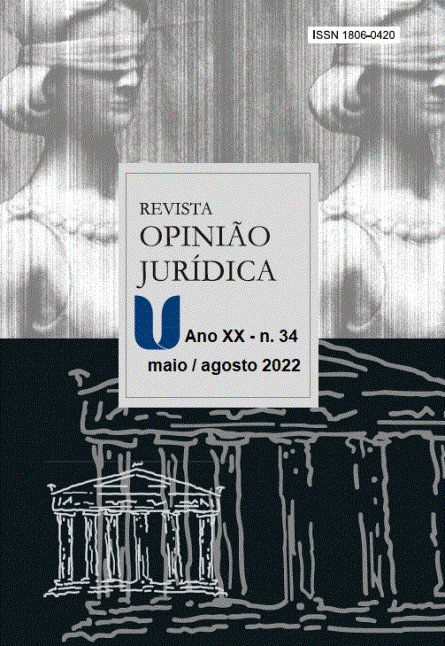THE CONSTITUTIONAL PROTECTION OF THE TELEWORKER AND THE CONFLICT WITH FUNDAMENTAL RIGHTS IN SPAIN
DOI:
https://doi.org/10.12662/2447-6641oj.v20i34.p114-141.2022Keywords:
teleworking, new technologies, disciplinary power, right to privacy, fundamental rightsAbstract
Objective: The increase in teleworking due to the COVID-19 pandemic has led to a paradigm shift in the world of work, highlighting the need to carry out an analysis of the rights of the teleworker, since said employment relationship is not regulated in an appropriate manner complete. The current Law 10/2021 offers a balanced regulation of rights and obligations of teleworking, although article 13 of the SW maintains many legal gaps regarding remote work.
Methodology: The real protection of the teleworker in Spain will be analyzed, from the point of view of judicial, constitutional and scientific doctrine, the conjugation of the fundamental rights of the teleworker with the power of surveillance and control of the employer, to understand the study of the different points of view regarding the existing regulation and jurisprudence.
Results: New technologies have facilitated the organization of tasks within the framework of labor relations, as well as a much more efficient development and execution of productive activity. However, they have also helped to expand the vigilance that the employer has with respect to its workers, with the disciplinary consequences that this may entail, as the different jurisdictional bodies have been delimiting through the weighting of the legal assets at stake.
Contribution: The inviolability of the home, the right to privacy of the teleworker and their communications, or the confrontation of rights between the worker and the employer constitute the main new challenges, in which any measure must comply with the provisions of the regulations, in the regulations of collective agreements and under the criteria of suitability, necessity and proportionality.
Downloads
Published
How to Cite
Issue
Section
License
CESSION OF COPYRIGHTS
The submission of articles to analysis for publication on Opinião Jurídica implies the author(s) transfers copyrights to Centro Universitário Christus – UNICHRISTUS for reproduction, publicizing, distribution, printing and publication, according to the Publication Norm 414R, Opin. Jur., Fortaleza, year 12, n. 16, p.1-414, Jan./Dec. 2014, costs to be bore by UNICHRISTUS, in whatever format or means that may or shall exist, in accordance to articles 49 and following of Federal Law 9.610/98.
1. In ceding copyrights, the author(s) agrees to do so in exclusivity, free of charge and for the totality of the work.
2. UNICHRISTUS may make the work, in its entirety or in parts, available for scholarly purposes, without altering its contents, except for small corrections that are deemed necessary.
3. The cession of copyrights is valid in all countries and for versions of the material in its original language or translated into a foreign language.
RESPONSIBILITY FOR THE CONTENT
By submitting an article, the author(s) declare to have sole responsibility for the content of the piece and is(are), therefore, responsible for any judicial or extrajudicial measures referring to it.
1. In case of joint authorship, all authors are considered collectively responsible, except when proved otherwise.



















